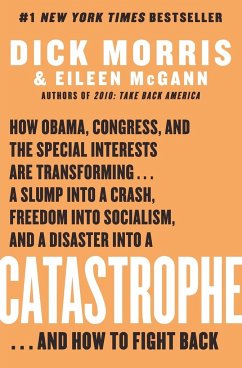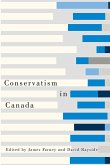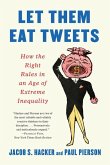- Broschiertes Buch
- Merkliste
- Auf die Merkliste
- Bewerten Bewerten
- Teilen
- Produkt teilen
- Produkterinnerung
- Produkterinnerung
Constructing Neoliberalism presents a rich analysis of the shift to neoliberal economic policies in four Anglo-American democracies – Canada, Britain, Australia, and New Zealand – over the course of the 1980s and 1990s.
Andere Kunden interessierten sich auch für
![Constructing the Quebec Referendum Constructing the Quebec Referendum]() Getrude J RobinsonConstructing the Quebec Referendum34,99 €
Getrude J RobinsonConstructing the Quebec Referendum34,99 €![Revitalizing Liberal Values in a Globalizing World Revitalizing Liberal Values in a Globalizing World]() Ruud LubbersRevitalizing Liberal Values in a Globalizing World28,99 €
Ruud LubbersRevitalizing Liberal Values in a Globalizing World28,99 €![Catastrophe Catastrophe]() Dick MorrisCatastrophe15,99 €
Dick MorrisCatastrophe15,99 €![Constructing Ethnopolitics in the Soviet Union Constructing Ethnopolitics in the Soviet Union]() Constructing Ethnopolitics in the Soviet Union56,99 €
Constructing Ethnopolitics in the Soviet Union56,99 €![Deliver Us from Evil Deliver Us from Evil]() Sean HannityDeliver Us from Evil15,99 €
Sean HannityDeliver Us from Evil15,99 €![Conservatism in Canada Conservatism in Canada]() Conservatism in Canada38,99 €
Conservatism in Canada38,99 €![Let Them Eat Tweets: How the Right Rules in an Age of Extreme Inequality Let Them Eat Tweets: How the Right Rules in an Age of Extreme Inequality]() Jacob S. HackerLet Them Eat Tweets: How the Right Rules in an Age of Extreme Inequality21,99 €
Jacob S. HackerLet Them Eat Tweets: How the Right Rules in an Age of Extreme Inequality21,99 €-
-
-
Constructing Neoliberalism presents a rich analysis of the shift to neoliberal economic policies in four Anglo-American democracies – Canada, Britain, Australia, and New Zealand – over the course of the 1980s and 1990s.
Hinweis: Dieser Artikel kann nur an eine deutsche Lieferadresse ausgeliefert werden.
Hinweis: Dieser Artikel kann nur an eine deutsche Lieferadresse ausgeliefert werden.
Produktdetails
- Produktdetails
- Verlag: University of Toronto Press
- Seitenzahl: 312
- Erscheinungstermin: 9. Mai 2023
- Englisch
- Abmessung: 229mm x 152mm x 18mm
- Gewicht: 449g
- ISBN-13: 9781487555559
- ISBN-10: 1487555555
- Artikelnr.: 68104877
- Herstellerkennzeichnung
- Libri GmbH
- Europaallee 1
- 36244 Bad Hersfeld
- gpsr@libri.de
- Verlag: University of Toronto Press
- Seitenzahl: 312
- Erscheinungstermin: 9. Mai 2023
- Englisch
- Abmessung: 229mm x 152mm x 18mm
- Gewicht: 449g
- ISBN-13: 9781487555559
- ISBN-10: 1487555555
- Artikelnr.: 68104877
- Herstellerkennzeichnung
- Libri GmbH
- Europaallee 1
- 36244 Bad Hersfeld
- gpsr@libri.de
Jonathan Swarts is an associate professor of Political Science in the Department of Social Sciences at Purdue University North Central.
Acknowledgements
1. The Construction of Political-Economic Imaginaries
1. Imaginaries, Norm Entrepreneurs and the Ideas-Praxis Linkage
* The Political-Economic Imaginary
* The Ideas-Praxis Linkage
* Contestation and Normative Change
2. How to Be a Norm Entrepreneur: Persuasion or Coercion (or Both)
3. Analyzing the Construction of Neoliberal Political-Economic Imaginaries
2. Prelude to Neoliberalism: The Post-War Policy Paradigm and the Economic
Turmoil of the 1970s
4. The Dominant Post-War Economic Paradigm
* Britain
* Canada
* Australia and New Zealand
5. Economic Crisis: Providing an Opening for Change
3. The Neoliberal Revolution of the 1980s and Beyond
* The “Crash Through or Crash” Approach to Norm Entrepreneurialism
* Gradualism and Ideational Change
* The Entrenchment of Neoliberalism Beyond the 1980s
4. The Strategic Construction of the Neoliberal Political-Economic
Imaginary
6. Norm Entrepreneurs and Ideational Change
7. Norm Entrepreneurs and the Political-Economic Environment
* National Economic Crisis
* The Role of Economic Bureaucrats
* The Structure of Political Institutions
8. Constructing the Neoliberal Necessity
* The Economic Crisis Argument
* The Long-Term Decline Argument
* The International Argument
* TINA: The Meta-Argument
9. Conclusion
5. Labor Markets and the Power of Partisanship
10. Labor Market Policy: Variations on a Neoliberal Theme
* Britain: The Unions as “Scapegoats of National Decline”
* Australia and New Zealand: Maintaining the Unions’ “Legislative
Cocoon”
11. Conclusion
6. “The Market Has Won”: Norm Entrepreneurs and the Anglo-American
Neoliberal Imaginary
References
1. The Construction of Political-Economic Imaginaries
1. Imaginaries, Norm Entrepreneurs and the Ideas-Praxis Linkage
* The Political-Economic Imaginary
* The Ideas-Praxis Linkage
* Contestation and Normative Change
2. How to Be a Norm Entrepreneur: Persuasion or Coercion (or Both)
3. Analyzing the Construction of Neoliberal Political-Economic Imaginaries
2. Prelude to Neoliberalism: The Post-War Policy Paradigm and the Economic
Turmoil of the 1970s
4. The Dominant Post-War Economic Paradigm
* Britain
* Canada
* Australia and New Zealand
5. Economic Crisis: Providing an Opening for Change
3. The Neoliberal Revolution of the 1980s and Beyond
* The “Crash Through or Crash” Approach to Norm Entrepreneurialism
* Gradualism and Ideational Change
* The Entrenchment of Neoliberalism Beyond the 1980s
4. The Strategic Construction of the Neoliberal Political-Economic
Imaginary
6. Norm Entrepreneurs and Ideational Change
7. Norm Entrepreneurs and the Political-Economic Environment
* National Economic Crisis
* The Role of Economic Bureaucrats
* The Structure of Political Institutions
8. Constructing the Neoliberal Necessity
* The Economic Crisis Argument
* The Long-Term Decline Argument
* The International Argument
* TINA: The Meta-Argument
9. Conclusion
5. Labor Markets and the Power of Partisanship
10. Labor Market Policy: Variations on a Neoliberal Theme
* Britain: The Unions as “Scapegoats of National Decline”
* Australia and New Zealand: Maintaining the Unions’ “Legislative
Cocoon”
11. Conclusion
6. “The Market Has Won”: Norm Entrepreneurs and the Anglo-American
Neoliberal Imaginary
References
Acknowledgements
1. The Construction of Political-Economic Imaginaries
1. Imaginaries, Norm Entrepreneurs and the Ideas-Praxis Linkage
* The Political-Economic Imaginary
* The Ideas-Praxis Linkage
* Contestation and Normative Change
2. How to Be a Norm Entrepreneur: Persuasion or Coercion (or Both)
3. Analyzing the Construction of Neoliberal Political-Economic Imaginaries
2. Prelude to Neoliberalism: The Post-War Policy Paradigm and the Economic
Turmoil of the 1970s
4. The Dominant Post-War Economic Paradigm
* Britain
* Canada
* Australia and New Zealand
5. Economic Crisis: Providing an Opening for Change
3. The Neoliberal Revolution of the 1980s and Beyond
* The “Crash Through or Crash” Approach to Norm Entrepreneurialism
* Gradualism and Ideational Change
* The Entrenchment of Neoliberalism Beyond the 1980s
4. The Strategic Construction of the Neoliberal Political-Economic
Imaginary
6. Norm Entrepreneurs and Ideational Change
7. Norm Entrepreneurs and the Political-Economic Environment
* National Economic Crisis
* The Role of Economic Bureaucrats
* The Structure of Political Institutions
8. Constructing the Neoliberal Necessity
* The Economic Crisis Argument
* The Long-Term Decline Argument
* The International Argument
* TINA: The Meta-Argument
9. Conclusion
5. Labor Markets and the Power of Partisanship
10. Labor Market Policy: Variations on a Neoliberal Theme
* Britain: The Unions as “Scapegoats of National Decline”
* Australia and New Zealand: Maintaining the Unions’ “Legislative
Cocoon”
11. Conclusion
6. “The Market Has Won”: Norm Entrepreneurs and the Anglo-American
Neoliberal Imaginary
References
1. The Construction of Political-Economic Imaginaries
1. Imaginaries, Norm Entrepreneurs and the Ideas-Praxis Linkage
* The Political-Economic Imaginary
* The Ideas-Praxis Linkage
* Contestation and Normative Change
2. How to Be a Norm Entrepreneur: Persuasion or Coercion (or Both)
3. Analyzing the Construction of Neoliberal Political-Economic Imaginaries
2. Prelude to Neoliberalism: The Post-War Policy Paradigm and the Economic
Turmoil of the 1970s
4. The Dominant Post-War Economic Paradigm
* Britain
* Canada
* Australia and New Zealand
5. Economic Crisis: Providing an Opening for Change
3. The Neoliberal Revolution of the 1980s and Beyond
* The “Crash Through or Crash” Approach to Norm Entrepreneurialism
* Gradualism and Ideational Change
* The Entrenchment of Neoliberalism Beyond the 1980s
4. The Strategic Construction of the Neoliberal Political-Economic
Imaginary
6. Norm Entrepreneurs and Ideational Change
7. Norm Entrepreneurs and the Political-Economic Environment
* National Economic Crisis
* The Role of Economic Bureaucrats
* The Structure of Political Institutions
8. Constructing the Neoliberal Necessity
* The Economic Crisis Argument
* The Long-Term Decline Argument
* The International Argument
* TINA: The Meta-Argument
9. Conclusion
5. Labor Markets and the Power of Partisanship
10. Labor Market Policy: Variations on a Neoliberal Theme
* Britain: The Unions as “Scapegoats of National Decline”
* Australia and New Zealand: Maintaining the Unions’ “Legislative
Cocoon”
11. Conclusion
6. “The Market Has Won”: Norm Entrepreneurs and the Anglo-American
Neoliberal Imaginary
References









